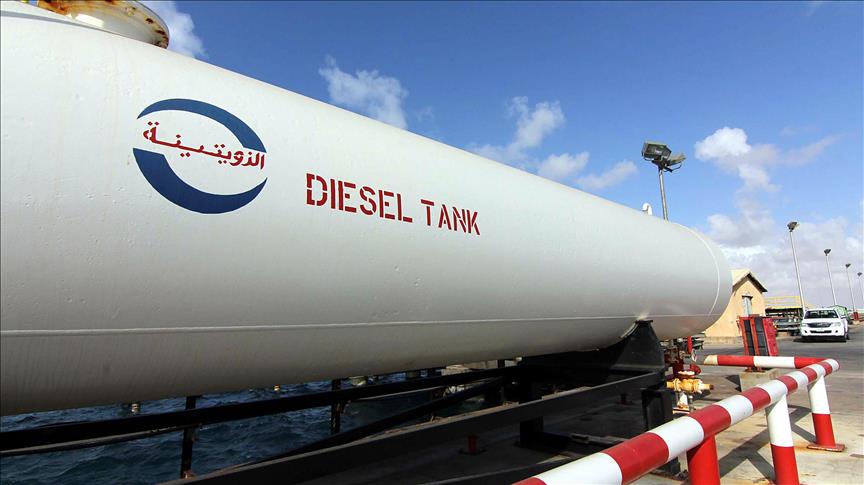Libya's oil production will decline by almost half on top of losses surpassing $6.5 billion already incurred due to the closure of oil wells and blockades imposed by the rebel forces headed by warlord Khalifa Haftar, the country's National Oil Corporation (NOC) said in a statement on Wednesday.
Since the beginning of the year, the NOC has only produced an average of 1.22 million barrels per day but hopes to raise this to 2.1 million barrels per day (b/d) by 2024, NOC Chairman Mustafa Sanalla was quoted as saying in the statement.
However, Sanalla said that in the absence of an immediate restart of oil production and because of the state’s failure to provide the requested budgets to address the many challenges resulting from the blockade, estimated production is set to decline to 650,000 b/d in 2022.
Consequently, he urged for the immediate restart of production in the interests of the Libyan people, declaring that a long-term blockade would cause long-term problems.
Describing Haftar’s blockade as “a historic crime against the people of Libya��, Sanalla said some of the oil wells were damaged irrevocably and could never be repaired and therefore need to shut down.
“Producing oil reservoirs that are shut down suddenly undergo mechanical, structural, chemical and even microbiological changes. These changes can result in early water production and the death of oil wells. Reservoir fluids -- oil, condensate, and water, that have rested in equilibrium with each other -- may mix and form thick emulsions that restrict further production of oil from the reservoir,�� he explained.
One such facility is the Sara oil field where a decline in production is foreseen with water encroachment damage.
Sanalla said they were also concerned about bacterial growth in some fields where the characteristics of the oil may change from low sulfur content to a higher rate. “Libyan oil is valued for being low in sulfur. The bacteria will raise the sulfur content, making it less valuable.��
On top of the $6.5 billion in lost production, Sanalla said that Libya, as a nation, has suffered while the NOC faces huge, extra costs as a result of the illegal blockade.
“We will have to work over between 160 and 260 wells, at a cost of between $50 million and $100 million. The major pipeline network, covering more than 6,760 kilometers, as well as surface equipment will require a huge budget for maintenance and repairs. The total will run to the billions of dinars,�� he said.
Libya has the largest proven crude oil reserves in Africa at 48.4 billion barrels. Natural gas and oil income represent approximately 90% of the government’s revenue.
Libya's internationally-recognized government has been under attack by Haftar's forces since April 2019, with more than 1,000 killed in the violence. Since 2014, Haftar's militias have been targeting oil fields, which represent the lungs of the Libyan economy.
Libya exports oil mainly to Italy, France, Spain and Germany. However, the Libyan economy has experienced a significant decline because of political unrest and a corresponding decline in production in oil fields under the control of Haftar forces.
By Sibel Morrow
Anadolu Agency


